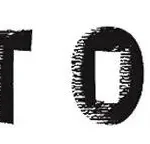TRENTON – Gov. Phil Murphy and Human Services Acting Commissioner Sarah Adelman Oct. 13 announced plans to invest more than $700 million to help parents pay for child care, provide bonus pay to child care workers, and distribute grants and increase support for child care providers.
“We know that child care is one of the key challenges facing families – especially single moms – as they rejoin our workforce,” stated Murphy. “Through these investments, we are committed to providing the necessary support to ensure that this challenge does not become an obstacle.”
“As we continue to manage and recover from the challenges of the pandemic, child care continues to be a top priority to strengthening our economy and our workforce,” Adelman stated. “We know that affordable, reliable and quality child care is especially critical for working mothers who have been disproportionately affected by the impacts of the pandemic. We are committed to doing everything we can to strengthen and support every segment of child care in New Jersey. We also thank our congressional delegation for their hard work and contributions to bringing these dollars to New Jersey families.”
According to a governor’s office release, the initiative builds upon previous efforts by the Murphy administration to support child care and reflects input from families served in the state’s child care assistance program, child care providers, and various stakeholders through listening sessions, and parent roundtables the department held over the last few months.
With the announcement of this new funding, Murphy and Human Services will have invested more than $1 billion in child care over the course of the administration, after more than a decade of the child care industry receiving no new increases.
The initiative relies mainly on American Rescue Plan funding allocated to Human Services by the federal Administration for Children & Families and includes the following key areas:
Supporting Children and Families by reducing child care costs and putting dollars back into the pockets of New Jersey Families.
- Continuing to help eligible families by covering the additional amount they may owe for fees or the difference between what the state pays and the provider charges. This assistance began in September and is now extended to December 2023. These additional payments provide up to $300 for full-time care, or $150 for part-time care, per eligible child, per month on top of the child care assistance rate paid by the state on behalf of the family.
- Waiving co-payments in the state’s child care subsidy.
- Implementing financial incentives to increase the number of child care providers that offer non-traditional evening and weekend hours.
Recruiting and Supporting Child Care Workers
- To increase child care capacity, $1,000 bonuses will be provided beginning this winter to help providers recruit new child care employees and retain current child care staff.
- Funding for an additional bonus will be provided in summer 2022.
- The bonuses will be partly funded from the Child Care Revitalization Fund signed into law by Murphy that provides $30 million to Human Services for child care workforce assistance.
Supporting Child Care Providers
- Child care providers will be eligible for two new rounds of pandemic stabilization grants to help stabilize and sustain their operations.
- For licensed child care centers, grant availability will range from $20,000 to $80,000 in the first round, depending on the number of children they serve. The grants will be $2,000 for family child care providers.
- Providers can use these dollars to support their operating expenses, such as wages and benefits, rent and utilities, cleaning and sanitizing, facilities maintenance, and improvements.
- Grants will also again be made available for summer youth camp providers in 2022 and 2023 to help cover Covid-related costs and assist families with paying for summer camp.
The plan builds on the Murphy administration’s efforts to strengthen child care in New Jersey through new investments in child care.
Before the pandemic, the administration worked to make child care affordable and accessible through the substantial rate increases in reimbursement rates, including boosting rates tied to the annual minimum wage increases. The administration also made it easier for families experiencing homelessness to access child care and reduced parent copayments by 50% in the child care assistance program.
During the pandemic, the state has spent $400 million on pandemic-related child care programs, including:
- Launching a temporary emergency child care program for essential workers
- Providing various grants and enhanced payments to child care providers
- Implementing a temporary program to help families with school-age children with unanticipated child care costs due to remote learning
- Paying full-time rates for school-age children in the state’s child care assistance program due to remote learning. Funding was also made available to summer camp providers








